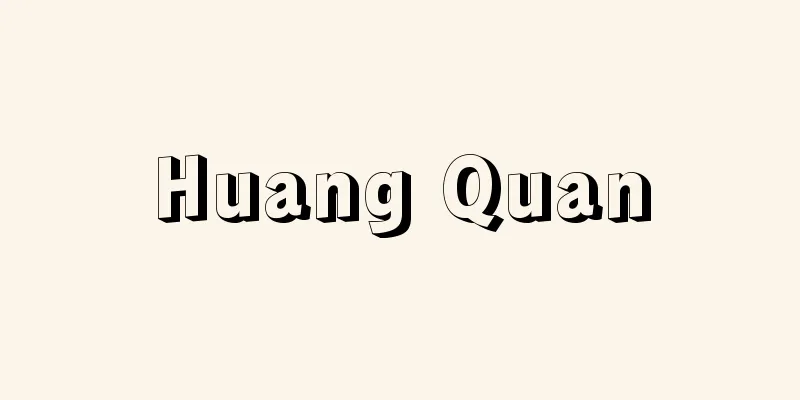Weight - Weight

〘 noun 〙 (the adjective "omoi" stem with the suffix "mi" attached) 1. Weight. Also, a feeling of being heavy. [Nippo Jisho (1603-04)] *Shizen to Jinsei (1900) by Tokutomi Roka, Shonan Zappi: "The bamboo peach pod lying in the snow melts a little, and as the pressure eases, it shakes off the remaining snow and rises up." 2. A character or attitude that is solid and composed. A powerful presence that gives the impression of having the power to subdue others. Dignity. *Setsuchu Ume (Plum in the Snow) by Suehiro Tetsucho, part 2: "I've heard that he's a very clever person, but somehow he doesn't look like he has much weight." 3. A burden felt in one's mind. ※Michi (1910)〈Ishikawa Takuboku〉"The young assistant instructor felt a weight of great responsibility"④ A state that strongly convinces of seriousness, importance, reality, etc. ※Social Hundred Faces (1902)〈Uchida Roan〉Nationalized Railways"The economic magazine reporter continued speaking again in a weighty tone"⑤ Renga and haiku have an old-fashioned, conceptual feel. ※Haikai Kyoraisho (1702-04) A comment on a teacher "When the Koshi people saw that the poems had already been settled, they began to ponder again"⑥ When creating a "weighted average" of several numbers in mathematics, it refers to the degree of importance given to each number.WeightSource: The Selected Edition of the Japanese Language Dictionary About the Selected Edition of the Japanese Language Dictionary Information |
〘名〙 (形容詞「おもい」の語幹に接尾語「み」の付いたもの)① 目方。重量。また、重い感じ。〔日葡辞書(1603‐04)〕※自然と人生(1900)〈徳富蘆花〉湘南雑筆「雪に伏したる莢竹桃、少し融けて圧力(オモミ)の薄らぐと共に、残雪を刎ね落して起きかへる」② 性質、態度などがどっしりと落ち着いていること。人をおさえる威力を感じさせる様子。貫祿。※雪中梅(1886)〈末広鉄腸〉下「随分利口な人と聞て居りますが、何だか重みがない様に見えますねえ」③ 心に感じる負担。※道(1910)〈石川啄木〉「若い准訓導の心に、何か知ら大きい責任のやうな重みを加へた」④ 重大さ、重要性、現実感などを強く納得させるありさま。※社会百面相(1902)〈内田魯庵〉鉄道国有「経済雑誌記者は再び重味ある調子で語を次ぎ」⑤ 連歌、俳諧で、観念的で古くさい感じ。※俳諧・去来抄(1702‐04)先師評「越人が句、已(すで)に落付たりと見ゆれば、又おもみ出来たり」⑥ 数学でいくつかの数の「重み付き平均」をつくる場合、それぞれの数につける軽重の度合のこと。
おも‐み【重み】出典 精選版 日本国語大辞典精選版 日本国語大辞典について 情報 |
Recommend
"The grass is bleached in the field" - Imashimegusa susuki no no arashi
...It is similar in concept to the Tenpo Rokkasen...
Ombre - Onburu
...However, the game is still played today in Hit...
Iguanidae
…A general term for lizards belonging to the Igua...
Roasted sweet potato - Yakiimo
〘Noun〙 Roasted sweet potatoes. 《Season: Winter》※Hy...
Quetzalcoatl - Quetzalcóatl (English spelling)
An important cultural complex in ancient Mexico, ...
orbiting geophysical observatory
…Following this spectacular start of the space ob...
Oplopanax elatum (English spelling) Oplopanaxelatum
…[Murata Gen]. … *Some of the terminology that me...
Corallium konojoi (English spelling)
…[Akira Chikayama]. . . *Some of the terminology ...
Dana, James Dwight
Born: February 12, 1813, Utica, New York [Died] Ap...
Oyu Circle Stone Archipelago
This is a site from the early Late Jomon period l...
Kinjo Saitenzan - Kinjo Saitenzan
A storyteller. (1) The first, around the time of t...
Cassiopeia - Cassiopeia
A constellation that rises high in the northern s...
Lepois, C. (English spelling) LepoisC
...Based on the wild assumptions of the wandering...
Lw antigen - Eldabry antigen
...This antibody was determined to be the same as...
External renal hilus
… [Exhaust system] The excretory organ of most po...









